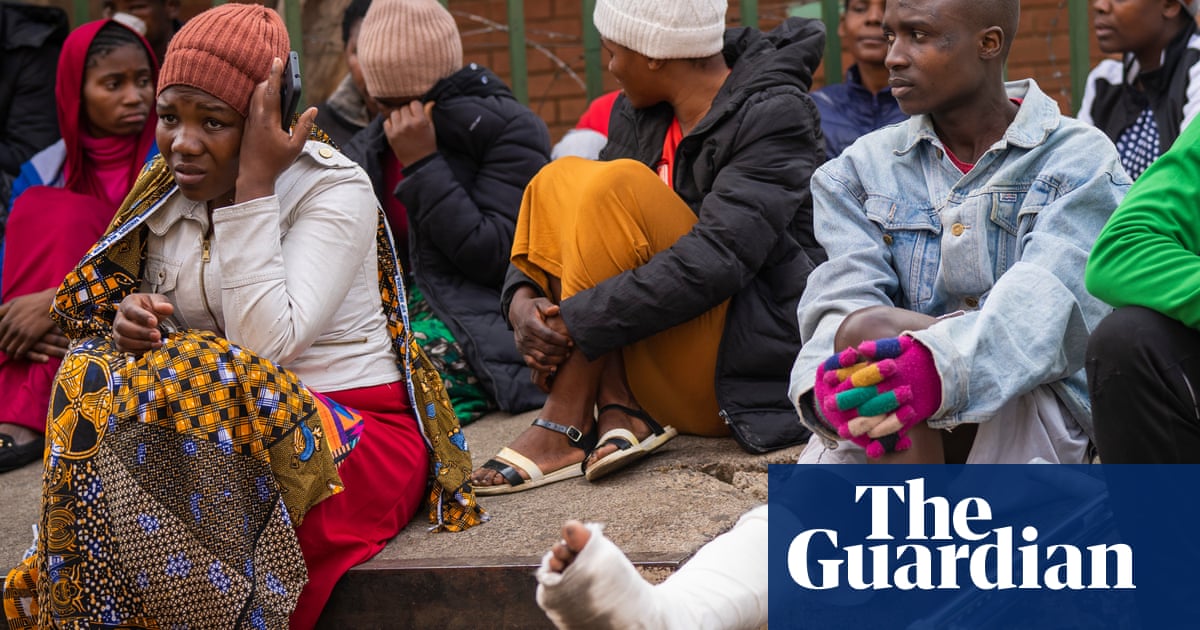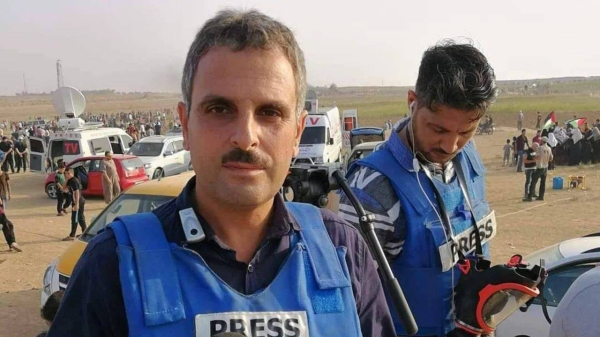
South African authorities were on Friday still searching for clues behind the cause of the most deadly fire in the country’s history, with at least 74 people confirmed to have died and dozens more being treated in hospital.
About 400 people are thought to have lived in informal settlements in the building at 80 Albert Street in central Johannesburg, which relied on illegal electricity connections for power and had no emergency exits. It is owned by the City of Johannesburg.
Mourners gathered at the site of the disaster on Friday morning, singing songs of solidarity, conducting prayer vigils, and distributing food to survivors. Several hundred residents are thought to have been displaced.
“No one else is going to do it,” said Tumi Moleko, a 40-year-old businesswoman, who with her two sons was running a makeshift kitchen handing out peanut butter sandwiches and cups of orange squash. “We can’t wait for our government to do something. They came yesterday for their photo ops and now they’ve gone.”
Maryam, from the nearby city of Pretoria, was at home when she heard about the fire on the Thursday morning news. Her brother lived in the building. She rushed to the site with her mother and two-year-old daughter, but they have not been able to find out whether he survived. “There has been no communications from government or the police, and there is no support for the families,” she said.
The government has established a hotline for people to check on the status of missing family members. But it appeared that no one had told Maryam, or the other family members waiting outside the building, about it.
Some residents who survived the fire are being housed in a temporary shelter in the nearby suburb of Bezuidenhout Valley, and are receiving meals and clothing. But not all have been offered a place there.
“One bus came yesterday to collect people, and it left when it was full. It did not come back,” said Issa, from Malawi. He slept on the street outside the building on Thursday night, and expected to do the same on Friday, along with several dozen other residents.
Faith, a sex worker from Zambia, lived in the building with her five brothers. She was staying with a friend when the fire broke out, and had no idea that anything had happened until the next morning, when she walked into a nearby pharmacy. “I was so happy, I was smiling, and the people there said to me, ‘Why are you smiling, don’t you know all your brothers are dead?’”
Like almost everyone else, Faith lost all her money, possessions and documents. “I’m going to get out of this country, I can’t stay here,” she said, clearly distressed. A passerby interjected: “How are you going to do that with no passport?”
At lunchtime, about 30 members of the women’s league of the ruling African National Congress arrived for an impromptu memorial ceremony. Their presence was not universally welcomed. As prayers were offered, one distraught resident shouted: “My brother died! God is not here! God is not here!” She was quickly ushered away.
Strikingly, the ceremony was conducted mostly in the South African languages of Zulu and Sotho – languages not spoken by most of the people who lived in the building, most of whom come from other African countries. “It’s completely tone deaf,” said Moleko.
On Thursday South Africa’s president, Cyril Ramaphosa, visited the scene. “It’s a wake-up call for us to begin to address the situation of housing in the inner city,” he said. “We need to get on top of this and find effective ways of dealing with problems of accommodation, of housing, and services in the inner city.”
The disaster has focused national attention on the abandoned and neglected buildings in Johannesburg’s city centre, many of which have been occupied by poor and vulnerable populations – people who have nowhere else to go. There are thought to be hundreds of such buildings.
The building at 80 Albert Street was one of 57 neglected buildings that had been identified as especially at-risk by the Johannesburg Property Owners and Managers Association.
In the aftermath of the blaze, city officials have repeatedly said their efforts to clean up derelict buildings, including 80 Albert Street, had been blocked by human rights NGOs. “We told them that this building would catch fire one day. But they threaten us with litigation when we try to move people,” said Mgcini Tshwaku, a member of the mayoral committee.
South Africa’s courts have repeatedly ruled that residents cannot be evicted from derelict buildings unless alternative accommodation is provided.
In a statement, the Socio-Economic Rights Institute of South Africa – one of the NGOs criticised by city officials – said: “To shift the blame to NGOs, as people speaking for the city are currently doing, speaks to the municipality’s unwillingness to take responsibility for the inner-city housing crisis.”












